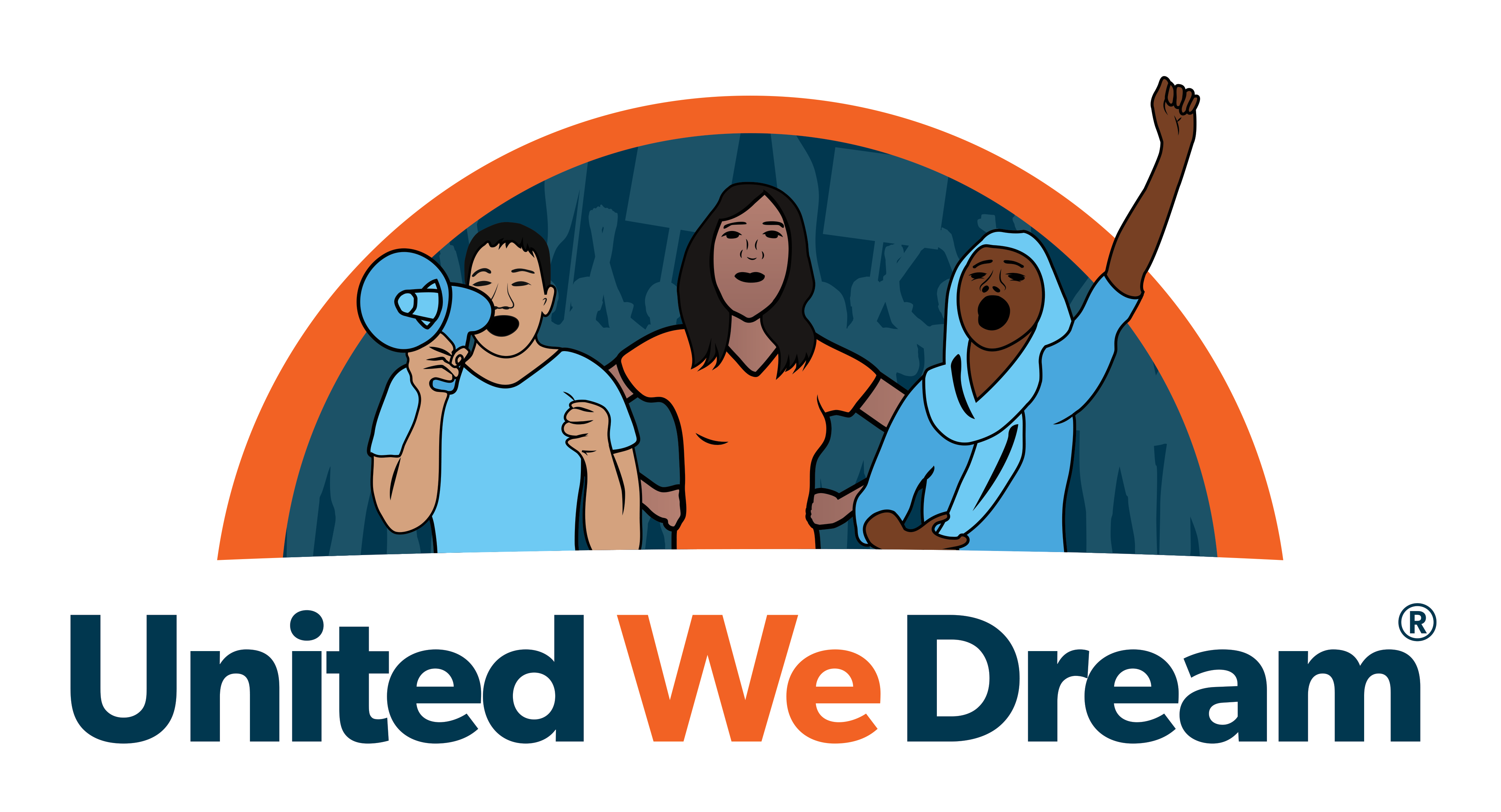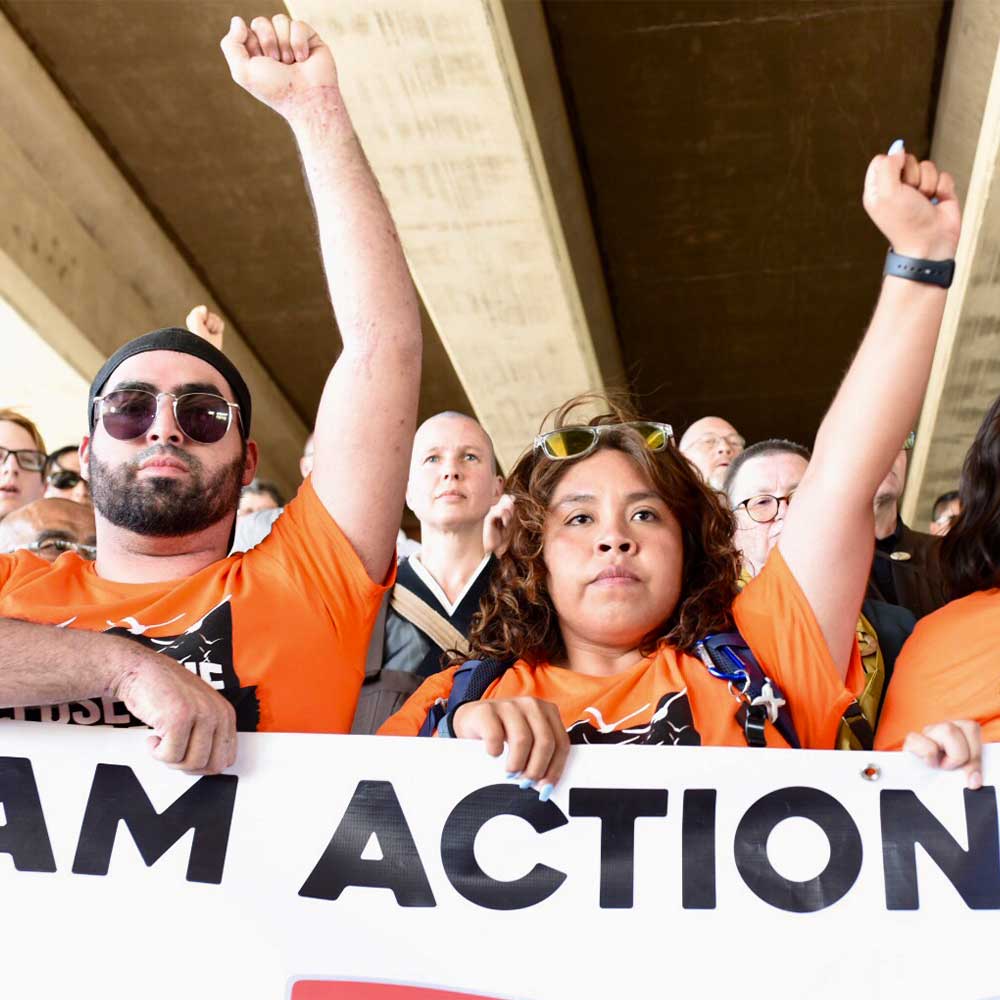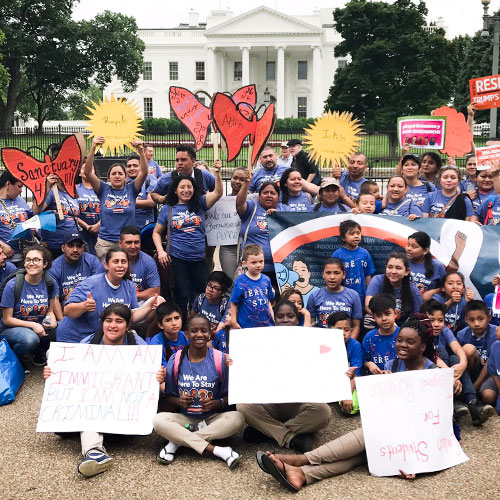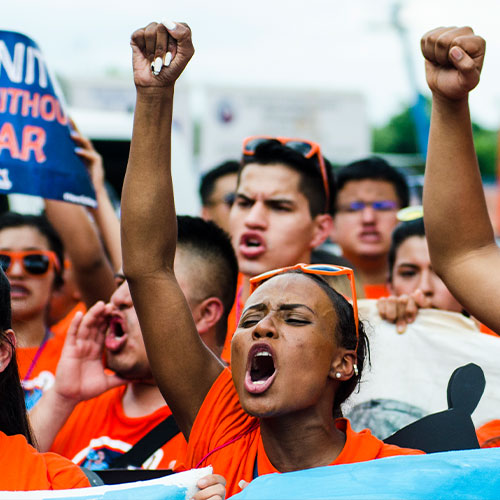Washington, D.C. – Over the weekend, thousands of supporters of Brazil’s former President, Jair Bolsonaro, stormed Brazil’s Congress, Supreme Court, and Presidential Palace in a violent assault on democracy. These attacks are the violent culmination of years of right-wing propaganda, conspiracy theories, and harmful election-related disinformation advanced by right-wing leaders often going unchecked on social media platforms.
As right-wing attacks continue to undermine democracy and disenfranchise people around the world, social media companies like Twitter, Meta (Facebook), and YouTube have continuously failed to stop dangerous right-wing actors from radicalizing supporters globally and protect users from harmful disinformation. Right now, Facebook is even considering following Twitter’s lead and reinstating former President Trump on their platform as a voice of hatred, right-wing extremism, and conspiracy theories.
José Muñoz, Deputy Communications Director at United We Dream, said:
“A threat to democracy anywhere is a threat to democracy everywhere. While former Presidents like Bolsonaro and Trump peddle in lies and deceit to maintain power, they do not act alone in their quest to curtail democracy. Often their lies, propaganda, and disinformation are aided and abetted by leaders at major social media platforms who are more interested in extracting data for profit than addressing systemic problems with their platforms.
The attack on the Brazilian government is a sobering reminder of the consequences of endless lies, harmful propaganda, and disinformation. This attack on democracy should be a wake-up call to Meta, Facebook’s parent company, as they consider allowing former President Trump back on the platform. We all have a role to play in upholding democracy and social media companies like Facebook, Twitter, and YouTube must ensure they play their part. We must hold them accountable for failing to take violent threats to democracy seriously by demanding that these corporations enhance transparency to prevent more people from being radicalized by their algorithms and harmful business models.”






